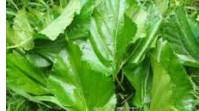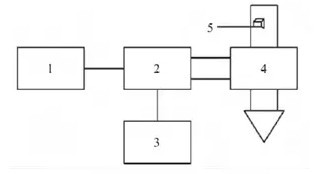Effect of different drying methods on content of index components of Xiasangju granules
ABSTRACT: Objective: To optimize the drying method of Xiasangju granule extract.
Methods: the extract of xisanju chrysanthemum granules was extracted and concentrated, and the extract was divided into 3 parts. Each part was dried by vacuum, spray drying and microwave drying equipment. The dried extract powder was extracted by chlorogenic acid, rosmarinic acid and Mongol glucoside by HPLC. Content determination.
Chromatographic conditions: The column was Waters Symmetry Shield RP18 (5 micron, 4.6 m m x 250.0 m m), and the mobile phase gradient elution was acetonitrile (A) - (volume fraction) 1.0% acetic acid solution (B). The flow rate was 0.9 mL.m. In-1, column temperature 35 C, detection wavelength 320 nm.
Conclusion: the method can be used to evaluate the different drying methods of Xia Sang Ju granules. The effects of 3 drying methods on the index components are vacuum drying, microwave drying and spray drying.
Key words: Xia Sang Ju microwave drying; vacuum drying; spray drying; microwave drying; chlorogenic acid; rosmarinic acid; Mongol glucoside


Xia Sang Ju Granule is a commonly used Chinese patent medicine. It is included in the Pharmacopoeia of the People's Republic of China in the 2015 edition. The prescription is derived from Wu Jutong's famous classical prescription "Sang Ju Yin", a famous epidemiologist in the Qing Dynasty. It is composed of Prunella vulgaris, mulberry leaves and chrysanthemum flowers. It has the functions of clearing the liver, clearing the eyes, so It can be used for wind-heat, cold, headache, hypertension, dizziness, tinnitus, sore throat, boils and other diseases. Xiasangju granules also have the functions of antimicrobial, antiviral and hypolipidemic.
In recent years, with the boom of herbal tea beverage market, Xiasangju granules are known by more and more people depending on its exact effect of evacuating wind and heat and cool taste.
Summer Sangju granules need to undergo extraction, concentration, drying and other processes in the preparation process. The drying process is the transformation process of material from liquid to solid, which is the key link in the preparation process of Summer Sangju. Because the material has been heated in this process, it has a certain destructive effect on the material composition. Component is an important basis for the material to exert its curative effect. Therefore, it is of great significance to select a drying method with low destructive rate and suitable for industrial production through experiments.
At present, the most commonly used drying methods in pharmaceutical industry are vacuum drying, spray drying and microwave drying 3 kinds. In this study, chlorogenic acid, rosmarinic acid and linarin were selected as the index components, and the suitable drying method for Xiasangju granules was optimized by comparing the contents of the three index components.